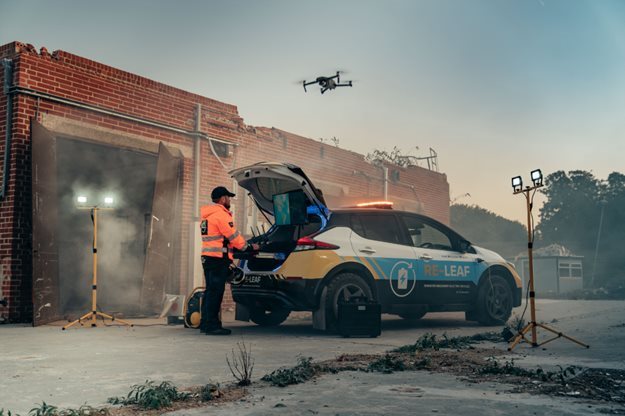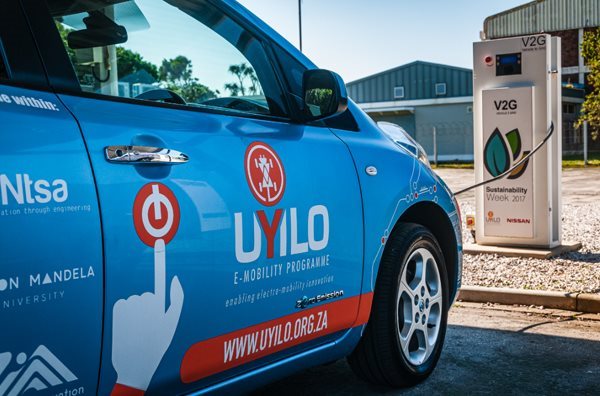

“Electric vehicles have an important role to play in energy supply,” says uYilo eMobility programme director, Hiten Parmar. “While electricity demand is normally associated with EVs in terms of charging, they have the potential to also supply electricity where needed.”
In addition to being a mode of transportation, an EV is a large mobile battery pack, and the energy contained therein is available on demand. This makes it possible to provide power in remote locations and during power outages, and fleets of EVs can change the grid dynamics which need to be managed by the national electricity provider.
“There are daily changes in energy requirements, when people wake up and go to work and also when they arrive home and settle in to their evening routine,” says Parmar.
“It is at these times when the grid is under strain as demand dramatically increases with many appliances used simultaneously. EVs have the ability to carry out behind-the-meter services (power used on site that does not go through the meter) and absorb the energy demand changes which significantly reduces the impact on the grid, smoothing out the curve to a far more manageable level – this has real potential in circumventing the need for load reduction.”
“While the Re-Leaf is shown as a concept, uYilo already has an active smart-grid demonstrator where solar power is employed for sustainable EV charging, second-life EV batteries are used for energy storage and the energy management is optimised to support both electric transportation and support the grid. This integrated system is an extension of Nissan's Energy Share, ensuring an EV is always part of the energy system.”
The Nissan Re-Leaf is a concept aimed at emergency response, providing power where there is none. Nissan's design shows the EV concept can simultaneously power an electric jackhammer (24 hours – 36kWh), a pressure ventilation fan (24 hours – 21.6kWh), a 10l soup kettle (24 hours – 9.6 kWh), an intensive care medical ventilator (24 hours – 3kWh) and a 100-watt LED floodlight (24 hours – 2.4kWh) as part of relief efforts.
“This bi-directional energy system (power sharing) is already in use and the uYilo Live-Testing Environment facility includes this functionality where EVs charge and also support the energy system,” says Parmar. “There have been several occasions around the world where EV owners provided their own power when disasters have impacted national electricity supply. Concepts like the Re-Leaf are an extension of this real-world situation.”
Nissan and uYilo have a partnership which dates back to 2013, when the eMobility Programme was established by the Technology Innovation Agency. Part of this collaboration enables uYilo to showcase the lead in demonstrating V2G (Vehicle-to-Grid) and V2X (Vehicle-to-Everything) possibilities over the years.
“Electric vehicles will be a significant contributor to the transportation technology mix, this is already accepted” says Parmar. “It is the additional aspects around owning an EV that need to be shared, to see how they can further enhance and improve our lives.”